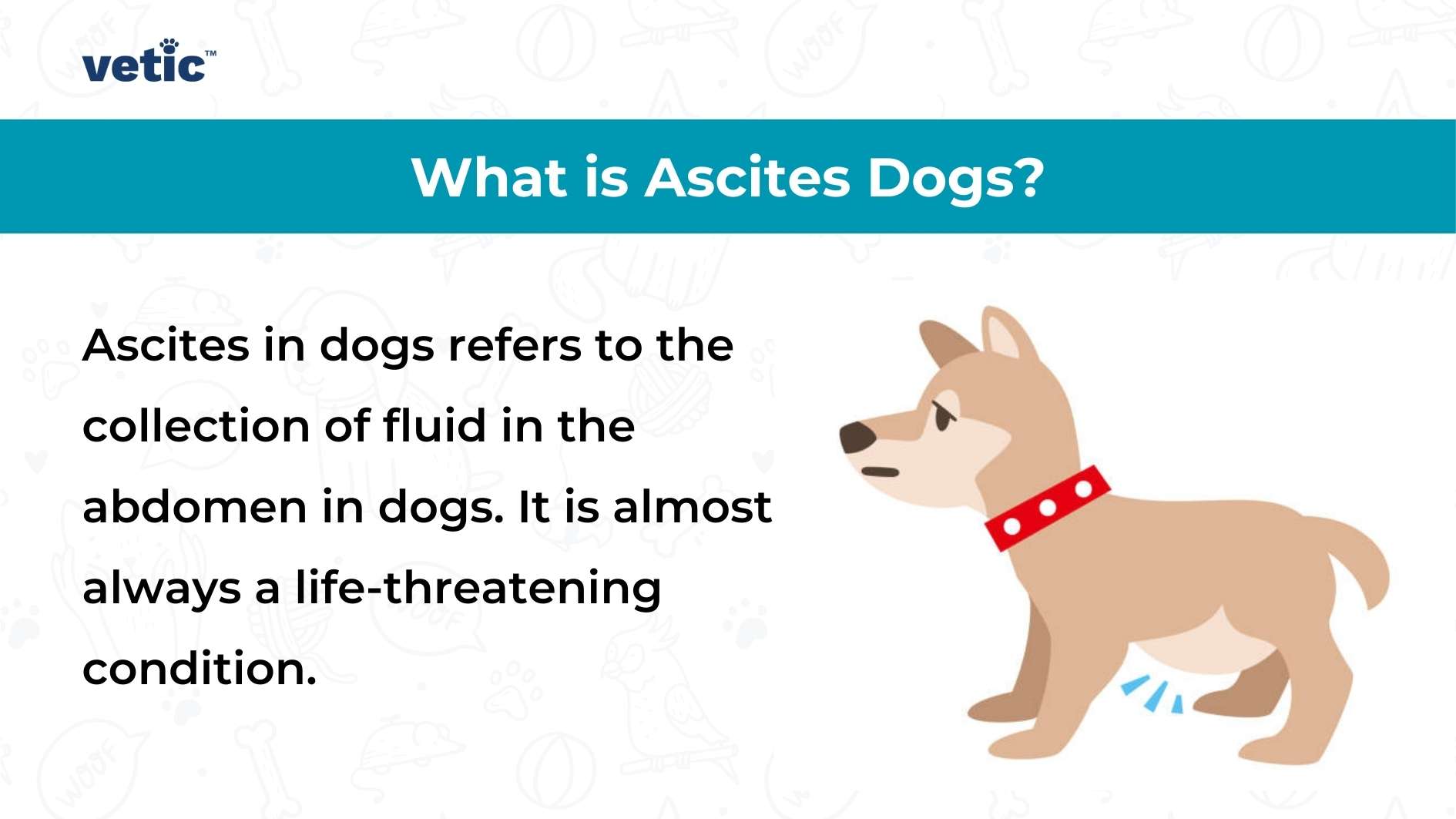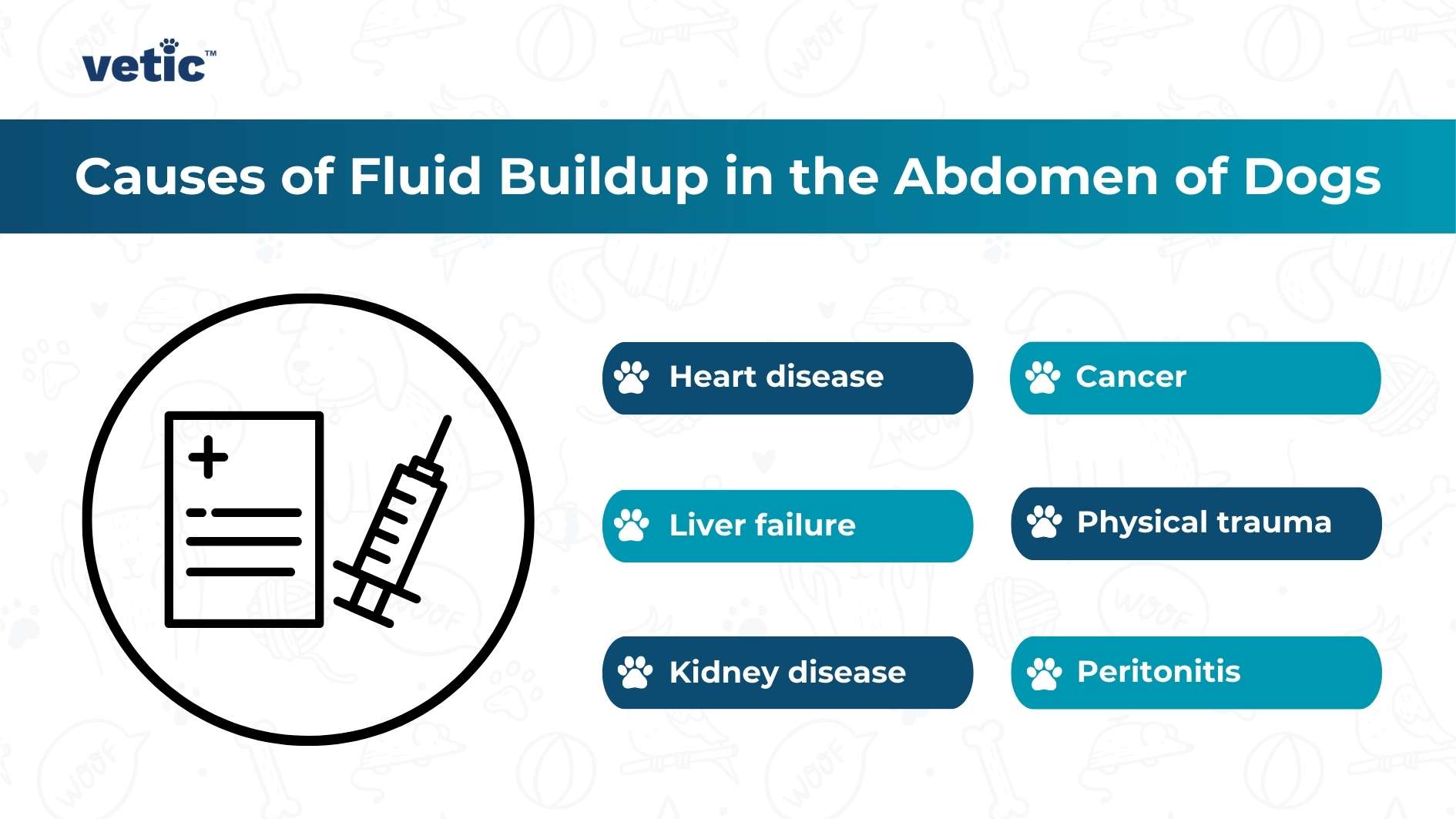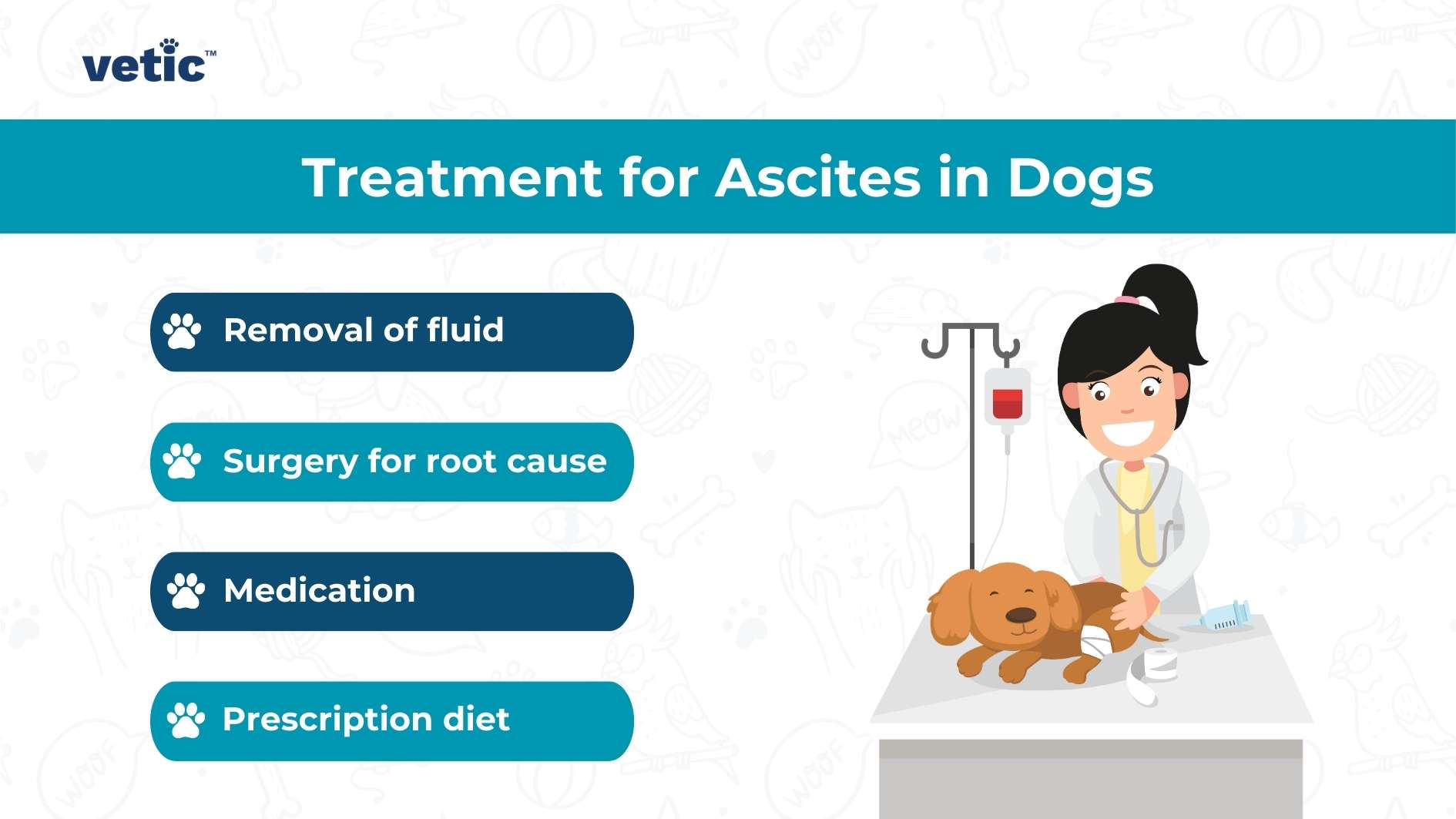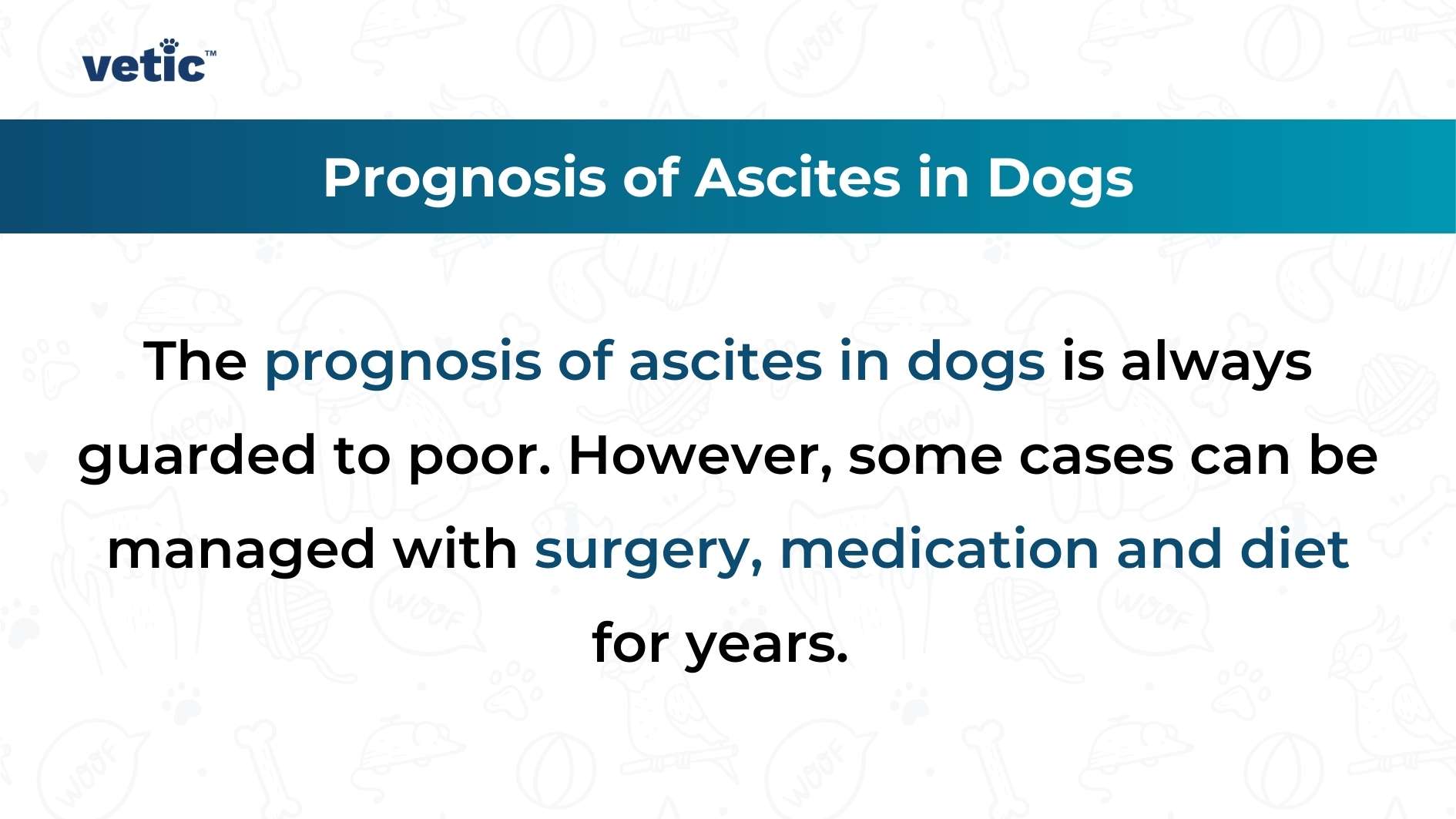What is Ascites or Accumulation of Fluid in the Abdomen of Dogs?

Ascites in dogs refers to the collection of fluid in the abdomen in dogs. It is almost always a life-threatening condition.
However, ascites or fluid in the abdomen of dogs isn’t a disease in itself. It is always a sign of some other disease or disorder the dog has. So, there can be numerous reasons why a dog’s abdomen fills up with fluid. The type of fluids also vary according to the cause.
The volume of fluid that collects in the dog’s abdomen depends upon the underlying condition. Sadly, in most cases, the cause of fluid in the abdomen of dogs is major organ failure.
What Are the Signs of Fluid in the Abdomen of Dogs?
Signs of ascites or fluid in the abdomen of dogs can be quite subtle in the beginning stages. As the volume of the fluid accumulated increases, the signs of ascites in dogs become more prominent.
The signs of fluid in the abdomen of dogs or ascites include –
- Lethargy
- Anorexia
- Laboured breathing
- Rapid shallow breathing
- Visibly distended abdomen
- Vomiting
- Restlessness
- Painful abdomen
- Coughing
In most cases all of these signs are present in dogs with late stage ascites. Early signs may not include complete anorexia, visible abdominal distension and laboured breathing.
What Causes Accumulation of Fluid in the Abdomen of Dogs?

Ascites in dogs or fluid accumulation in the abdomen is a secondary condition, which indicates a very serious primary cause.
Here are some possible causes of fluid in the abdomen of dogs –
Heart disease
Congestive heart failure, right-sided heart failure, dilated cardiomyopathy and heartworms are the most common cardiac causes of ascites in dogs.
Liver disease
Hepatitis and chronic liver failure are the two most common causes of fluid accumulation in the abdomen of dogs.
Cancer
Inflammation from a tumour, pressure on a major blood vessel or the rupture of an organ can cause accumulation of fluid in the abdomen of dogs
Poisoning
Some toxins including rat poison can cause blood to not clot. It can cause blood to seep into the abdomen and accumulate there. It is also known as haemoabdomen.
Physical trauma
Physical trauma including motor vehicle accidents can cause organs to rupture and leak fluid into the abdomen. Sometimes, the bladder or urinary system undergoes injury and causes uroabdomen. Damage to the spleen or liver can cause haemoabdomen.
Peritonitis
It is a serious infection of the abdominal wall lining. Peritonitis in dogs can cause ascites.
How is the Presence of Fluid in the Abdomen of Dogs Diagnosed?
The first sign of ascites in dogs is a distended abdomen. If your dog is showing any of the signs of fluid in the abdomen as mentioned above, you should contact your veterinarian immediately.
The presence of fluid can be easily confirmed through physical examination, ultrasound and X-rays.
However, determining the type of fluid in the abdomen requires taking a sample of the fluid and examining it.
At the same time, the veterinarian will recommend a set of tests including complete blood count, liver function and kidney function test, and urinalysis to determine the primary cause of the fluid accumulation.
What’s the Treatment for Ascites in Dogs?

In some cases, the veterinarian might want to remove some of the fluid from the dog’s abdomen. Fluid removal is not recommended in all the cases of fluid accumulation in the abdomen. It only reduces the pressure on the organs in the abdomen and doesn’t treat the root cause of ascites.
Sometimes, the veterinarian will also recommend surgery for the cases of trauma, peritonitis or a bleeding tumour to stop the fluid from the source.
Medication and diet are the most important parts of the treatment of fluid in the abdomen of dogs. Heart disease, liver disease and kidney disease require long-term medication and prescription diet. Veterinarians often prescribe meds to reduce the built up fluid and remove excess fluid from the pet’s body.
Can Ascites in Dogs be Cured?

Since ascites or fluid in the abdomen of dogs is a secondary condition the prognosis depends on the primary cause of ascites.
Ascites often represents a guarded to poor prognosis for dogs. Nonetheless, some cases may be managed in the long-term with the help of surgery, medicines and special diet.
